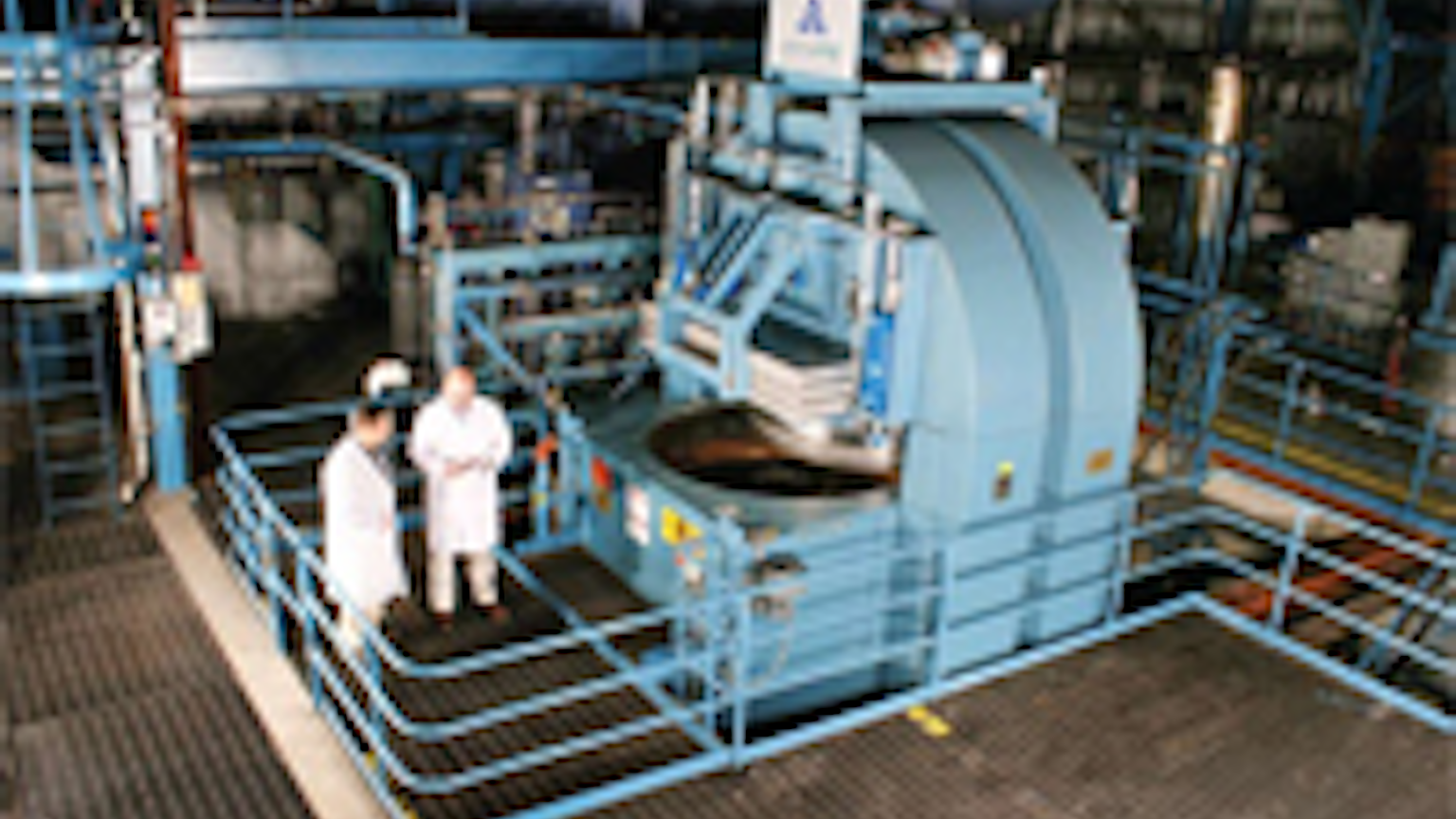
Belgium Threatens to Sink UK’s Nuclear Deterrent by Freezing Export of Key Tech
Sputnik News
MOSCOW (November 24, 2022) — The UK’s nuclear arsenal consists of 225 warheads, with the weapons fitted aboard four Vanguard-class Trident ballistic missile submarines patrolling the North Sea. Britain has the fourth-largest nuclear arsenal in the world.
Green lawmakers from Belgium’s ruling coalition government have vetoed the provision of an export license for a key piece of nuclear-related technology to Britain, putting a crimp in the latter’s ability to domestically manufacture nuclear weapons, UK media have reported.
The equipment in question is called an isostatic press (IP) — a device used in the handling of radioactive waste during the manufacturing process at Britain’s nuclear weapons factory in Aldermaston, southern England. The press is manufactured by Antwerp-based company EPSI, a Belgian-American concern.

World’s largest isostatic press installed in Camas, Washington.
Deputy Prime Minister Georges Gilkinet blocked an export license for the press on the basis of his Ecolo Party’s principled opposition to nuclear weapons.
Britain has responded by threatening to scrap a €600 million machinegun export to Belgian arms maker giant FN Herstal.
A Royal Navy source was quick to assure that the “challenge” posed by the export block would “not affect the continuous at sea deterrent.”
The ban has caused a stir in Brussels, with some of the parties making up the current seven-party coalition, formed in 2020 after a long-running political crisis, attacking Gilkinet and the greens over their position.
“This is hallucinatory. We are allies within NATO and in the context of a huge conflict on the borders of Europe. And now Ecolo is going to say that we are not allowed to supply weapons to our own NATO partner?” an unnamed Belgian government source told local media.
“Refusing the sale of equipment to Great Britain is the greatest of dogmatic stupidity. It is not acceptable, liberal MR Party leader Georges-Louis Bouchez said.
The Francophone Ecolo greens and their Flemish Groen counterparts have been outspoken in their criticism of nuclear weapons, and have long pushed Brussels to back the UN Treaty on the Prohibition of Nuclear Weapons. The parties are also opponents of peaceful nuclear energy, and recently voiced opposition to extending the lifespan of the country’s nuclear reactors.
This is the second time in a decade that EPSI has been wrapped up in an international scandal. In the early 2010s, the company was criticized by Washington for exporting isostatic press equipment to Iran, despite claims from US intelligence that Tehran might use the equipment to build nuclear weapons. Iran has long denied that it has any such plans.
The isostatic press scandal comes amid an increase in tensions between the US, the UK and its continental European NATO allies. Belgium joined other NATO countries in pouring fuel on the security crisis in Ukraine this spring and summer, sending tens of millions of euros’ worth of weaponry to Kiev including anti-tank missiles, mortars, vehicles, small arms, and personal protective gear.
At the same time, the country is suffering from record inflation and is poised on the brink of a recession amid skyrocketing energy and food prices, and declining industrial production, leading to cost-of-living protests and calls to end the proxy war with Russia.

Produced by the P-HIP technology top and bottom views of a boron carbide certifiable test object. Photo Courtesy LANL
Comments
ICAN — The Francophone Ecolo greens and their Flemish Groen counterparts have been outspoken in their criticism of nuclear weapons, and have long pushed Brussels to back the UN Treaty on the Prohibition of Nuclear Weapons.
Greg M — This appears to be rather important, technically speaking, and could help illuminate and stigmatize nuclear weapons commitments not just in the UK but across NATO. Kudos to these activists!
IPA Web — The development of P-HIP was supported by the Department of Energy Office of Energy Efficiency and Renewable Energy. Manufacturing technology could transform the production of critical components. A provisional patent is pending.
Posted in accordance with Title 17, Section 107, US Code, for noncommercial, educational purposes.